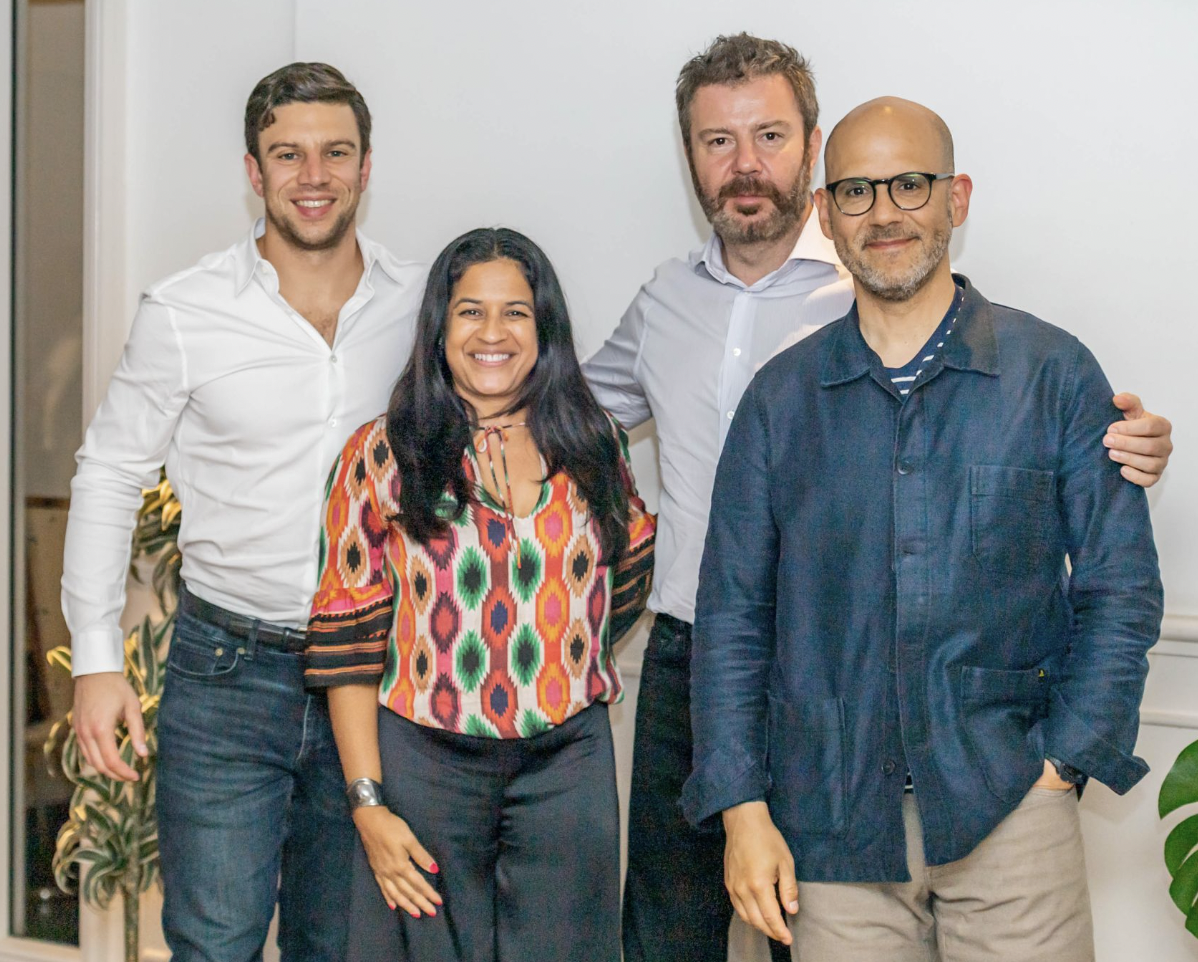A plethora of market-leading companies has been forged out of economic downturns, changing the way we live and work. The Great Recession fanned the growth of fintech, enterprise software, and the sharing economy; Uber, Airbnb, WhatsApp, Slack, and Dropbox are among the household names which emerged from its ashes. Some of these companies, like the fintech boom, were a direct response to the crisis, a search for a different way of operating. Others simply prove that a recession does not have to kill off otherwise healthy businesses.
Today, amid high inflation and interest rates, startups are again facing hard times in what is possibly the worst tech downturn since the dot-com crash of 2001, argues Carter Busse, business angel investor, and chief information officer at Workato, an enterprise automation platform.
Yet the fundamental demand for digital products and services is not changing. Investors are still hunting for creative, agile founders, who can weather the storm, and history suggests that the crunch will spur innovation. What does it take to build a successful startup during an economic downturn?
Get the fundamentals right
Startups can no longer count on plentiful capital to fuel the growth-at-all-costs strategy used, with mixed results, by companies from Uber to WeWork. Many of those groups face layoffs and valuation cuts now. For today’s early-stage founders, the focus is on balancing profitability with growth.
“2023 will be about nailing it rather than scaling it,” says Michael Yamnitsky, managing director at Insight Partners, a global venture capital and private equity firm. “There’s going to be a key focus on growth retention rates, lowering costs of acquisition, and increasing gross margins. All the things you want to see in a great, efficient business are going to be put in focus.”
While founders are under growing pressure to conserve their runaway, they should weigh the need for short-term savings against their longer-term visions for growth. Cutting costs and talent too aggressively risks hobbling their companies in the future, says Nowi Kallen, managing director at Salesforce Ventures, the software group’s venture capital arm.
“You shouldn’t cut too deep, too hard, and kill all your growth because you will struggle when the environment improves”, he argues. “Investors are talking about becoming profitable… But when you’re an early-stage founder, you shouldn’t be too focused on that. You want to continue to show good growth, strong unit economics and it’s fine to burn some cash while keeping your eye on SaaS benchmarks.”

Nowi Kallen – Managing Director of Salesforce Ventures
Aligning to customer’s pain points
In a tough environment, customers will scrutinise their spending, and protect only those services which are solving major pain points, cutting ‘nice-to-have’ tools. Customers have become increasingly conscious of high IT costs, for instance, and are slower to sign new deals. Amazon and Microsoft have pointed to efforts by buyers to optimize their cloud spending. Cloud is now the second biggest operating expense for tech companies after salaries, explains Michael Yamnitsky. “We’re past the initial shift to the cloud. The next couple of years will be about optimizing people processes around cloud operations.”
Tools which help businesses to do that are likely to see growing demand. That includes software that analyzes cloud spend, or improves efficiency in IT teams, Michael Yamnitsky predicts. “You have these DevOps and platform engineering teams which are responsible for cloud infrastructure and a huge chunk of a company’s spending. The tools that make these people more productive will be critical.” He points to categories such as service catalogs and developer portals as particularly interesting, as they could serve as the anchor for a new type of platform to manage cloud operations.
Whatever their software or tech, founders will have to prove their product is indispensable to succeed. That means adapting their proposition to what is top of mind for customers, says Nowi Kallen: “Can founders position their product in a way that allows those companies to do more with less? That means driving automation when faced with less headcount, and remaining as productive as before.” Startups should consider altering their packaging, and creating more affordable products with fewer features, if that is what is needed to retain a contract.

Michael Yamnitsky – Managing Director at Insight Partners
Investors look to resilient software segments
Some software sub-sectors are more vulnerable to cuts than others. Investors will “look at those segments that are seen as resilient, where people cannot simply cut spending,” Nowi Kallen predicts. He gives the example of cybersecurity, pointing out that companies will put themselves at risk if they do not invest in the right capabilities. Globally, organizations will spend $188.3bn on information security and risk management products in 2023, according to Gartner, a research group. By 2026, that figure will reach $267.3bn, it estimates. That will be fueled partly by growing spend on cloud security, another segment well placed to weather the downturn, even as cloud growth slows. “With the ongoing transition to cloud, businesses are going to have to increase investment in cloud security infrastructure, so that is highly resilient, similar with data shifting to the cloud” says Nowi Kallen.
Investors will, as always, hunt for startups that promise to change the way we live and work, as fintech and sharing economy platforms did after the Great Recession. “History says that there are many opportunities during a downturn to look around and start something completely new in a new domain,” says Eyal Manor, tech executive and angel investor. But he adds: “There’s still so much opportunity in the cloud, in machine learning, in cybersecurity. Those domains are still early in the innovation cycle and extremely interesting.”

Eyal Manor – Tech Executive & Angel Investor
Take advantage of a growing talent pool
Nearly 100,000 US-based tech workers have been laid off so far this year, as headcounts shrink in companies from Amazon and Google to Coinbase and Affirm. Startups are not immune to the cuts, but for those weathering the downturn, the lay-offs could prove an opportunity. The pool of highly-skilled talent available to founders is growing, alleviating technical skills shortages. Startups looking to fill skills gaps are facing less competition from larger rivals. And they are more attractive than ever to new employees, who tend to value the dynamism and entrepreneurial experience that startups offer.
“There’s a lot of very strong talent out there, so this is actually a very good time to think about increasing talent density in a disciplined way,” Nowi Kallen said. “Think ahead. In 12 months, the environment can look a lot better and it’s better to uplevel your organization now, so they are prepared when things pick up again.”
Still, balance will be important for successful startups. There are lessons from companies that recruited aggressively during the boom years on the promise of future growth, and are now having to make cuts, he says. If founders are to avoid cycles of hiring and firing, there is a need to “change how companies think about hiring, where discipline is more key.”

Carter Busse – Angel Investor & CIO at Workato
Focus on culture and leadership
Just as the downturn is claiming tech jobs, automation threatens to make some redundant. Tools including low-code and no-code platforms, and AI platforms such as ChatGPT, will change the profile of the workforce going forward. Increasingly, tech companies should look for soft skills and emotional intelligence, rather than technical capacity, argues Carter Busse.
“I don’t hire technical people anymore in my team. I want people who can actually talk with business leaders, and think about what their problem is and try to solve it,” he explains. “It’s about hiring people who can connect the dots, people who have leadership skills” above those with technical qualifications, he advises. “Bring in humble, hungry, passionate people, willing to wear many hats.”
Taken together, these principles can help the tech industry weather the storm. “This is the third downturn I’ve seen in my professional career, but I’m very optimistic. Technology doesn’t stop, innovation doesn’t stop,” says Eyal Manor. Investors deploying capital now have an opportunity to build businesses that are ready to scale as the market recovers, he argues. For founders, the downturn is an opportunity to “go back to the core and look at where I add value,” he says. “It adds focus, and focus is important to the success of technology”. Companies that weather the crunch are well-positioned to attract talent, and likely to emerge with fewer competitors, positioning them for future growth. Creative founders have an opportunity to innovate, solve problems, and fuel the next tech boom.
Related Articles

Building an Antifragile Company Culture for Sustainable and Long Term Success

Highlights from Crew Capital’s Annual European Founders’ Dinner: Scaling for success in an AI-driven world
Crew Capital hosted our annual European founders’ dinner this past July. Our friends at Salesforce Ventures joined us to co-host…







